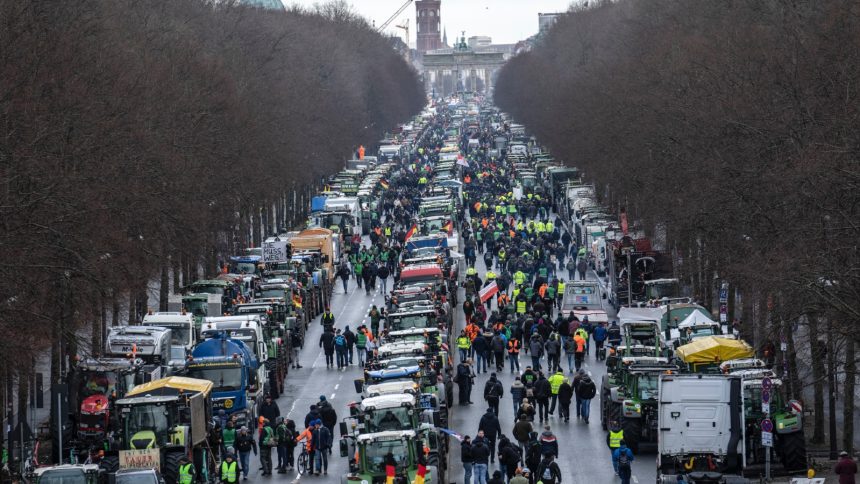In mid-December, hundreds of disgruntled German farmers drove tractors into Berlin, donning yellow vests and parking in front of the Brandenburg Gate. Their anger stemmed from the government’s plan to eliminate tax breaks on diesel used in agriculture, potentially costing individual farmers thousands of euros. This sparked protests across the country and continent, highlighting the challenges governments face in curbing agricultural emissions. The European Union’s reversal on agriculture-specific climate goals emphasizes the need for a carefully planned “just transition” that considers farmers’ economic needs, according to experts. Similar protests have erupted in other European countries, uniting farmers against the EU’s climate policies. While ambitious climate goals have been set, the lack of extensive planning and investment for the transition to more sustainable agrifood systems remains a significant challenge, analysts say. Funding from subsidies and reallocation of such funds may provide a solution, but the implementation of a “just transition” remains complex and uncertain.






